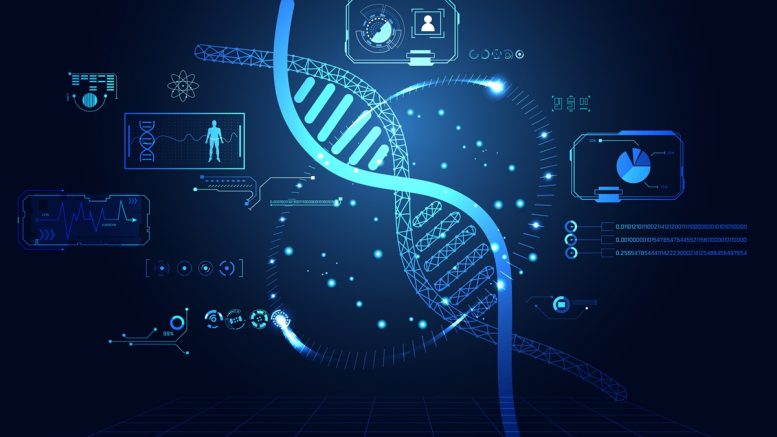Precision medicine is transforming healthcare by replacing the traditional one-size-fits-all approach with personalised care. By integrating a patient’s genetic profile, lifestyle factors, and environmental exposures, healthcare providers can now deliver more accurate diagnoses and develop customized treatment plans tailored to each individual’s unique biology and circumstances.
Over the past few years, Generative AI (GenAI) has emerged as a powerful catalyst for accelerating this healthcare revolution. These advanced systems can predict drug responses and side effects, generate synthetic data to fill critical gaps, boosts efficacy, and speed up discovery – ultimately making personalised treatments faster and more accessible to patients.
For instance, two patients with the same cancer diagnosis may receive different treatment plans based on the mutations in their specific tumours or how their body is going to likely respond to the different drugs based on their genetic profile, maximising effectiveness while minimising adverse affects.
Tailoring treatment responses with the power of generative AI
GenAI is enabling better predictions as to how individual patients are likely to respond to specific treatments as well as identifying potentially adverse events before they happen. By training on biomedical data like genomic, transcriptomic, and clinical records, these models can assess a drug’s likely efficacy and toxicity based on a patient’s unique profile. For example, a 2023 study by Wang and colleagues leveraged Multi-Omics Integrated Collective Variational Autoencoders (MOICVAE), an AI model capable of accurately predicting drug sensitivity for 25 drugs across seven kinds of cancer. In a separate study, Shi and colleagues proposed CSAM-GAN, a generative adversarial network based on sequential channel-spatial attention modules able to predict patient prognosis in lower-grade glioma and kidney renal clear cell carcinoma.
Models like these are helping clinicians match the right therapies to the right patients, while minimising risks through earlier, data-driven insight.
GenAI steps in: a new frontier in single-cell research
The rapid growth of single-cell sequencing data is creating new opportunities. So-called single-cell foundation models based on generative pre-trained transformers are able to distill biological information about genes and cells and be fine-tuned for biomedical tasks, like cell identification, even when data is incomplete. Their broad cellular knowledge makes them highly generalisable across a range of biomedical applications. Relatedly, GenAI can also be used to create synthetic biomedical training data that closely mimics the statistical variation found in real world patient data. In the case of rare diseases with few patients, for example, researchers can train models on thousands of AI-generated examples that match the underlying condition – creating more powerful and accurate models. Additionally, these datasets can be stripped of personally identifying information and are thus suitable for publication without fear of violating patient confidentiality.
Advancing the future of clinical development
GenAI offers new ways to identify patient subgroups and the relevant biomarkers, crucial for clinical development and maximising drug efficacy. In cancer and other complex diseases, different patients frequently respond differently to the same therapy. Uncovering which biomarkers (or combination of biomarkers) differentiate treatment responders from non-responders is a key part of precision models.
GenAI excels at finding patterns across complex datasets that are hard to analyse using more traditional statistical methods. CSAM-GAN, for instance, is able to integrate a patient’s DNA profile, RNA profile, and histopathology images to predict outcomes — and crucially, pinpoint which biomarkers drive those predictions, whether a gene, pathway, or tissue feature.
Looking ahead, GenAI could even enable the creation of “digital twins” for each patient. Every available treatment plan could then be simulated with the digital twin to identify how each one is likely to play out. While still an emerging concept, this could one day transform personalised medical care.
Cutting the drug discovery timeline
Perhaps most strikingly, GenAI is accelerating the traditionally slow and costly process of new drug development. Bringing a new drug to market can take well over a decade and costs billions. GenAI has the potential to dramatically cut both timelines and expenses.
GenAI is streamlining and automating stages that traditionally would take researchers months or years. Instead of physically synthesising and testing thousands of possible drugs, GenAI models can generate novel drugs that have a high likelihood of meeting a specific criterion. For example, these models can identify compounds that have a high chance of binding to a particular receptor (say, serotonin receptors) while having a low chance of toxicity. This narrows down the list to the most promising candidates, reducing early-stage development from years to mere weeks or months.
Helping precision medicine become faster and more accurate
Generative AI is rapidly establishing itself as a cornerstone of precision medicine, fundamentally transforming healthcare from standardised protocols to truly personalised approaches.
More than just a technological advancement, GenAI represents the future for making medicine more individualised, predictive, and efficient for doctors and patients. What we are seeing today is merely the beginning of a profound transformation – Already, generative AI is already helping to identify patient-specific drug responses individually, uncover novel biomarkers, generate synthetic datasets and accelerate drug discovery.
These AI models will continue to grow and adapt to clinical needs, and will become even more capable and impactful across the healthcare ecosystem. The future of medicine sees a doctor and an AI colleague working together running virtual trials based on a patient’s biomedical data, predicting drug responses to personalise available therapy.
The result is transformative: the right treatment, for the right patient, at the right time – through the deliberate application of advanced AI working in harmony with human medical expertise. This convergence promises to reduce adverse effects, improve outcomes, and ultimately deliver on the long-sought promise of precision medicine and truly personalised healthcare.
By Dr. Ilya Burkov, Global Head of Healthcare and LifeSciences Growth at Nebius





